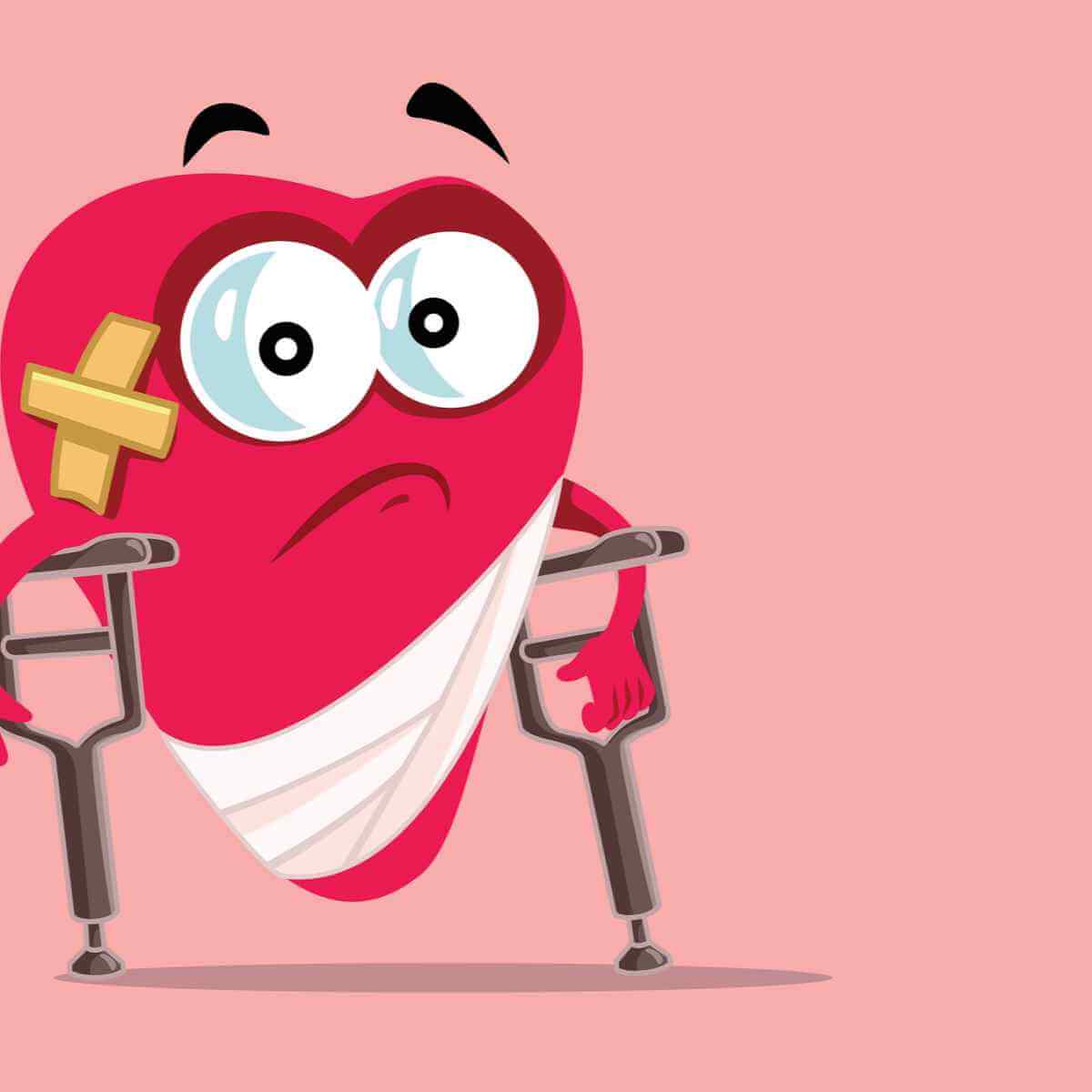
How do you know when you are broken?
September 22, 2021
What was the first big obstacle that found its way right in the middle of your path? You know, the one that kicked your ass. The one that made you doubt everything that you though you knew. That situation that you did not think you would survive. You got a punch to the gut or maybe a rabbit punch that you did not even see coming. It happens to all of us.
How long do you need to catch your breath and get your legs back under you? Yes, you got knocked down and it hurts. You waller for a little while or a long while, but eventually, you do get up and move forward again. It is only when you stay down and waller that you feel broken. Notice that I said, feel. We all know that our feelings can lie to us. Our thoughts mess with our minds too. Just who is in charge here? You learn to go with what you know and not how you feel. It is simple but it is certainly not easy. You keep having conversations or fights inside your mind.
When nothing is working
Nothing that you try is working for your loved one. Doctors are not helping. A decline is happening and you don’t know what to do next. One thing after another keeps piling on. Your shoulders can’t take much more and your knees are beginning to buckle. What do you do next?
If you are smarter than the average bear, you take a time out, rest and recharge for two or three days and then look at things with fresh eyes. Maybe you call a meeting of the minds and brainstorm for options. Maybe it is time to call Pat and get a plan of action with options to access when you need them. Yes, that was a shameless plug for my services.
Making decisions under stress is a set-up for failure. Sure, it may work for a few days or even a week, but eventually, you will be dealing with a much larger problem and much more stress. Managing by crises is exhausting and you never get rested. When you are under abnormal stress your body dumps cortisol and the other stress hormones. This dumping of hormones activates the fight, flight, freeze or fawn types of reactions. You cannot physiologically make a rational decision. Your brain has been hijacked. You can make a decision or choice but it will not be a rational or logical one. You are really reacting to a perceived danger and will do whatever it takes to feel safe in the moment.
Regret. The feeling that you feel about 30 minutes to an hour later. You find yourself trying to reason out what in the hell has just happened and what is going on now? Oops! You don’t have the time to ponder that. Something else needs your immediate attention. Off you go. Your brain has been hijacked again because of another stress hormones dump.
Stop beating yourself up, manage your stress and build resilience
Why do you feel broken? Have you failed at something? Are you beating yourself up for either making a mistake or not having good information? Are you just exhausted and running on auto-pilot? Maybe, you feel that you are only existing. You are not in control of anything and you cannot seem to get a handle on things. This expands to your whole life. Everything is running together and there are no clear boundaries anymore. Overwhelmed is what you are. You are not okay. You are grieving. You need permission to not be okay. Will you allow yourself too not be, okay? Will you tell someone that you are not, okay? Will you accept yourself as you are or will you still fight it? Will you let yourself feel your feelings? Yes, be still and feel your feelings and emotions without judging them. Let them be how ever they are. It is one of your body’s defense mechanisms to protect itself. You don’t have to solve anything, right now. Now is the time for accepting yourself just as you are. Maybe you feel broken because you are heartbroken.
Crap is changing and we do not like change. It is hard to change. It is hard to accept change. Acceptance of what is, right now, is one way to begin moving forward. If you have ever lifted weights, you know that it is hard to build muscle. It is painful. It is time consuming. You must give the muscle rest for it to grow and get stronger. It is the same way for us as care givers. We must learn new things. We must accept things that we do not want to accept. We must rest, accept and recharge to get stronger.
Sure, you can fight feeling your emotions and fight changes and even fight accepting things as they are now. You can stuff that shit down. Eventually, all that pressure will keep building up and escaping as a little steam (ranting and raving) until you are completely overwhelmed and explode leaving a damaging and sometimes un-survivable blast radius (relationships, job, friends, kids).
Tips for being more resilient:
Get more comfortable not knowing everything. We all want to know “why?”. There are times we will never know “why?’. Always wanting to know “Why?” will keep us stuck. When there is a feeling of being stuck, you will not move forward. Carl Yung says, “What we resist, persists.” So, stop resisting and learn your lesson, then move on.
Can you find some joy in what you are doing? Do you know “your why?” Learn to refocus on what truly matters. Learn to refocus on who really matters. You learn that you don’t have to give in to every whim of your feelings. Feelings can change quickly.
Feeling broken is an illusion. We have biases both known and unknown. Our feelings will lie to us and our emotions will fuel our beliefs. Our beliefs are linked to our perceptions of what is or what should be. Our beliefs determine how we interpret and feel about the events that happen in our lives. I don’t know where I read this or heard this, but it seems to be true. Once we form our beliefs, our mind has a natural tendency to search for the evidence to prove them right. It is not what happens to us in our lives that creates the experiences that we have, but it is our beliefs about those events that have happened. Basically, you can change how you view stuff if you challenge how and why you believe what you believe. Stop telling yourself, “I am broken,” “I can’t,” “I will try.” Every time I hear the phrase “I’ll try,” it reminds me of the character Yoda that says, “There is do or do not, there is no try.” I also heard it from a counselor that stated if you say “I’ll try” you are giving yourself a way out. So, do it or don’t do it.
When your give a damn, can’t give a damn. Find three things that you are grateful for every day and write them down.
Become more aware of when you are susceptible to feeling broken.
You are tired.
You are frustrated.
You feel nothing.
You begin beating yourself up.
You feel the “woulda, shoulda, coulda’s”
You feel shame, guilt or anger
When things become uncomfortable, you shut down.
When you feel some of these things, remember your goal or set a new goal. You need something to focus on. Something to bring you back to center. I am not saying stuff your emotions, I am saying do not let them get in control and hijack your brain.
Responsibility and discipline. They can be scary words and even scarier to accept and work on.
You are responsible for your own resilience
You are responsible for yourself and your own feelings. No one can make you feel anything, you get to decide. Discipline is when you decide what you will or won’t do.
You may be a little bent but you are not broken so stop trying to “fix” yourself. You just have some feelings that you need to deal with. Set a small new goal. Be consistent and achieve your goal. Keep going. Set another goal, and another and another. Keep growing. Keep getting better and better. Stronger and stronger. When you get knocked down, take a breather and get back up and move forward again. You don’t go back to zero, you begin where you left off. Give yourself permission to let go of old hurts. Give yourself permission to let go of the need to always be in control. Fuel your body with good nutrition. Hydrate. Move your body. Have compassion for yourself.
Pat



